Donald Trump may be a world of chaos all by himself, but the world beyond Trump is changing in dramatic ways, often with little notice. We’d like to tell you about it and we’re keeping track of these global changes, from the incremental to the monumental, so that you don’t have to.Sign up for our weekly newsletter of the biggest news in the world delivered to your inbox every Sunday.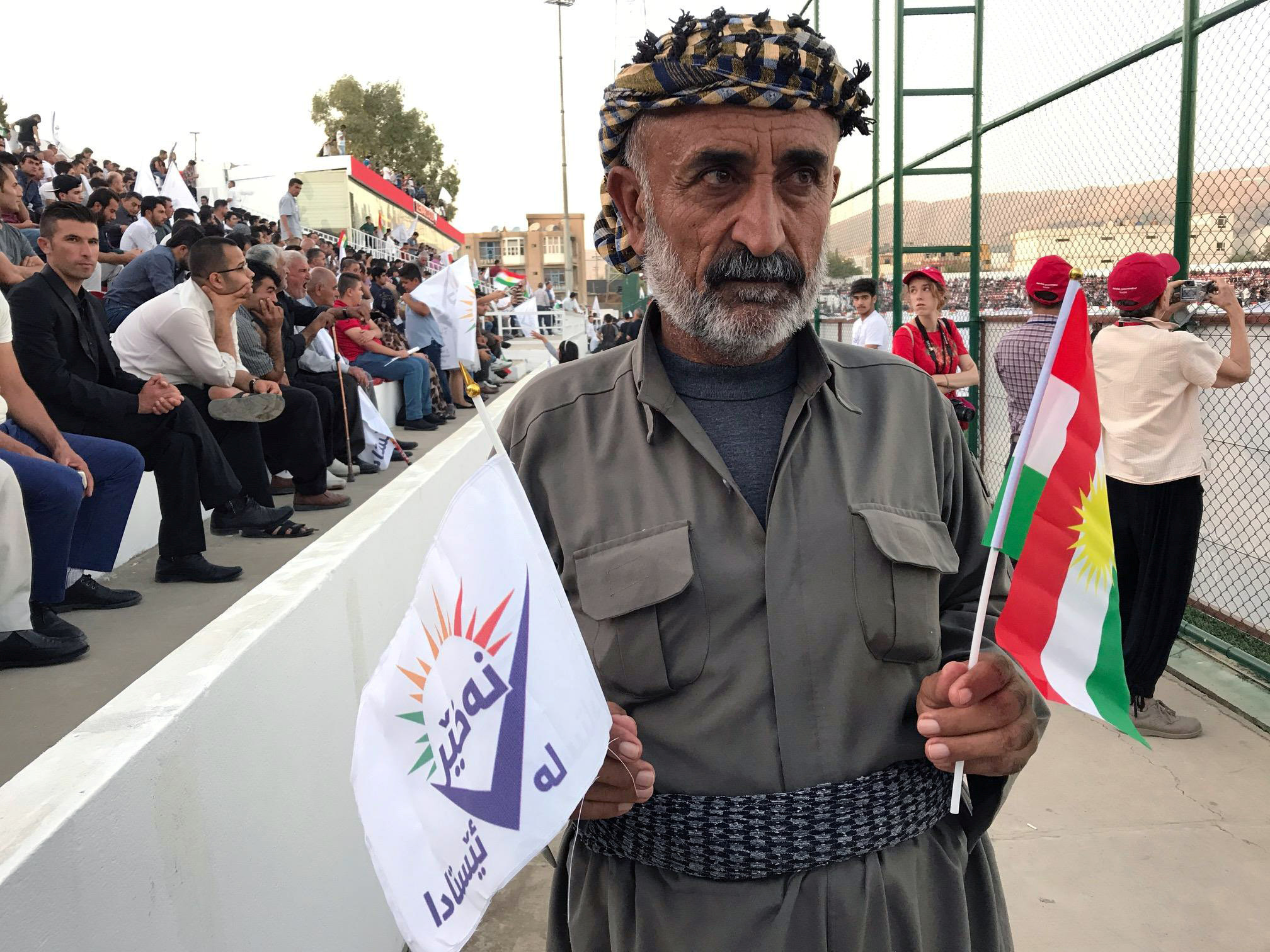 The autonomous Kurdistan region of Iraq voted Friday to move forward with its controversial independence referendum, ignoring enormous international pressure to delay the vote or cancel it all together.The U.S., Iran, Turkey and much of the West have warned that a vote now risks throwing Iraq, just emerging from the grips of ISIS, back into total chaos. But Iraq’s Kurds have been vying for their independence for decades, and after gaining more territory during the fight against ISIS, they’re convinced now is the right time to press the issue.The referendum is set for September 25.Omed Khoshnaw, a Kurdish member of parliament, told Reuters they had “been waiting for more than 100 years” for a state.But outside of Kurdish circles, the decision immediately stirred outrage. Iraqi Prime Minister Haider al-Abadi called the vote “unconstitutional and illegitimate,” and Turkey’s President Recep Tayyip Erdogan said Kurdish leaders had “serious political inaptitude” for not delaying the vote.The U.S.-led coalition fighting ISIS also opposes the referendum, with U.S. special presidential envoy Brett McGurk saying Thursday that a vote would undermine recent gains made against ISIS.“There is no international support for the referendum, really, from anybody,” said McGurk at a press conference in Irbil. “To have the legitimate process, you want to have observers, you want to have the United Nations, you want to have international legitimacy. And there is no international legitimacy for this process.”Unfazed, the president of Kurdistan’s Regional Government Massoud Barzani said Friday that the vote would go forward. “We still haven’t heard a proposal that can be an alternative to the Kurdistan referendum,” he told a pro-independence rally, according to Al Jazeera.— Alexa Liautuad
The autonomous Kurdistan region of Iraq voted Friday to move forward with its controversial independence referendum, ignoring enormous international pressure to delay the vote or cancel it all together.The U.S., Iran, Turkey and much of the West have warned that a vote now risks throwing Iraq, just emerging from the grips of ISIS, back into total chaos. But Iraq’s Kurds have been vying for their independence for decades, and after gaining more territory during the fight against ISIS, they’re convinced now is the right time to press the issue.The referendum is set for September 25.Omed Khoshnaw, a Kurdish member of parliament, told Reuters they had “been waiting for more than 100 years” for a state.But outside of Kurdish circles, the decision immediately stirred outrage. Iraqi Prime Minister Haider al-Abadi called the vote “unconstitutional and illegitimate,” and Turkey’s President Recep Tayyip Erdogan said Kurdish leaders had “serious political inaptitude” for not delaying the vote.The U.S.-led coalition fighting ISIS also opposes the referendum, with U.S. special presidential envoy Brett McGurk saying Thursday that a vote would undermine recent gains made against ISIS.“There is no international support for the referendum, really, from anybody,” said McGurk at a press conference in Irbil. “To have the legitimate process, you want to have observers, you want to have the United Nations, you want to have international legitimacy. And there is no international legitimacy for this process.”Unfazed, the president of Kurdistan’s Regional Government Massoud Barzani said Friday that the vote would go forward. “We still haven’t heard a proposal that can be an alternative to the Kurdistan referendum,” he told a pro-independence rally, according to Al Jazeera.— Alexa Liautuad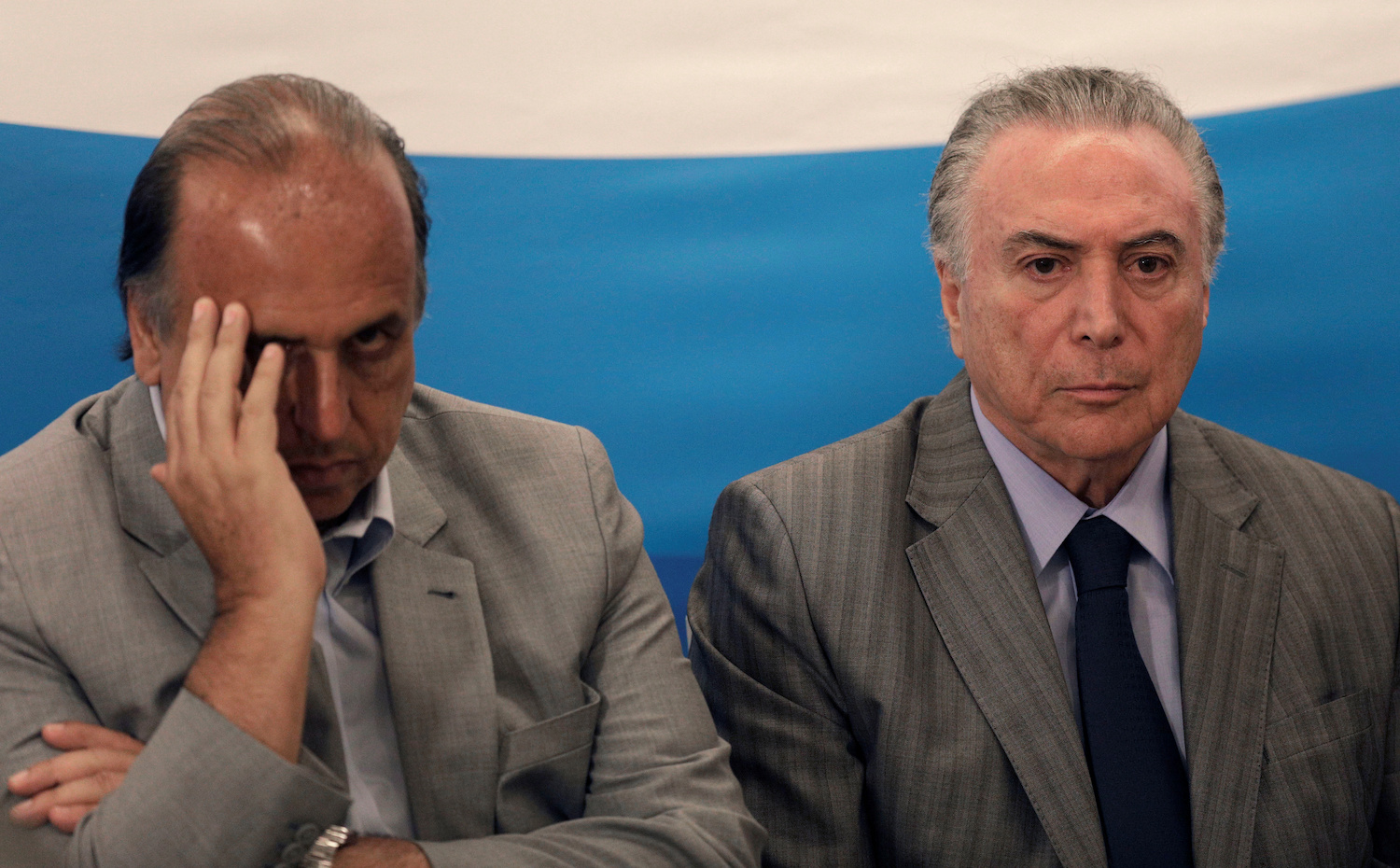 Brazilian president Michel Temer was charged Thursday with being the head of a criminal organization.That’s quite a coincidence. Because Temer’s predecessor, Dilma Rousseff, was charged with running a criminal organization last week.And the president before Rousseff, Luiz Inácio Lula da Silva, is also facing charges of… running a criminal organization.What began as a low-level investigation into money laundering at a gas station in the city of Brasilia in 2014 has ballooned into a full-blown political apocalypse for Brazil’s ruling class. The probe, known as Operation Car Wash, has plunged the country into political and economic chaos as dozens of senior officials, including all three of the country’s most recent heads of state, face charges stemming from a widening scandal of bribery, kickbacks, and graft involving the country’s biggest companies.“They have committed illicit actions in exchange for bribes through the use of several public bodies,” prosecutors said. The president was also accused of obstructing justice in the ongoing investigation.Temer, never shy about showing his poetic side, dismissed the charges as “magical realism,” saying prosecutors were relying on untrustworthy witnesses and claiming ties to foreign accounts that hadn’t been verified. Temer is no stranger to controversy, having leapt from the vice presidency to the presidency through a seemingly Machiavellian power grab reliant on former speaker of the house Eduardo Cunha’s impeachment campaign against Dilma. Cunha, now in jail on a 15-year sentence, was named Thursday as one of Temer’s criminal conspirators.As sitting president, Temer will now face trial if two-thirds of Brazil’s lower house of parliament vote against him, a fate he narrowly escaped last summer. His approval rating with the Brazilian public hit just 2 percent back then.The widening scandal is tearing at the fabric of Brazil’s civic life, said Chayenne Polimedio, an analyst focusing on Brazilian politics at the New America think tank in Washington, D.C.“Brazil is a textbook case of systemic corruption that has suddenly, dramatically exploded,” Polimedio told VICE News. “There’s been a chain reaction. It started with a small investigation in a random little city. Now it’s blown up into a massive probe implicating basically everyone involved in politics in the entire country.”The scale of the corruption scandal, she said, “is mind-blowing. It just never ends.”—Greg Walters
Brazilian president Michel Temer was charged Thursday with being the head of a criminal organization.That’s quite a coincidence. Because Temer’s predecessor, Dilma Rousseff, was charged with running a criminal organization last week.And the president before Rousseff, Luiz Inácio Lula da Silva, is also facing charges of… running a criminal organization.What began as a low-level investigation into money laundering at a gas station in the city of Brasilia in 2014 has ballooned into a full-blown political apocalypse for Brazil’s ruling class. The probe, known as Operation Car Wash, has plunged the country into political and economic chaos as dozens of senior officials, including all three of the country’s most recent heads of state, face charges stemming from a widening scandal of bribery, kickbacks, and graft involving the country’s biggest companies.“They have committed illicit actions in exchange for bribes through the use of several public bodies,” prosecutors said. The president was also accused of obstructing justice in the ongoing investigation.Temer, never shy about showing his poetic side, dismissed the charges as “magical realism,” saying prosecutors were relying on untrustworthy witnesses and claiming ties to foreign accounts that hadn’t been verified. Temer is no stranger to controversy, having leapt from the vice presidency to the presidency through a seemingly Machiavellian power grab reliant on former speaker of the house Eduardo Cunha’s impeachment campaign against Dilma. Cunha, now in jail on a 15-year sentence, was named Thursday as one of Temer’s criminal conspirators.As sitting president, Temer will now face trial if two-thirds of Brazil’s lower house of parliament vote against him, a fate he narrowly escaped last summer. His approval rating with the Brazilian public hit just 2 percent back then.The widening scandal is tearing at the fabric of Brazil’s civic life, said Chayenne Polimedio, an analyst focusing on Brazilian politics at the New America think tank in Washington, D.C.“Brazil is a textbook case of systemic corruption that has suddenly, dramatically exploded,” Polimedio told VICE News. “There’s been a chain reaction. It started with a small investigation in a random little city. Now it’s blown up into a massive probe implicating basically everyone involved in politics in the entire country.”The scale of the corruption scandal, she said, “is mind-blowing. It just never ends.”—Greg Walters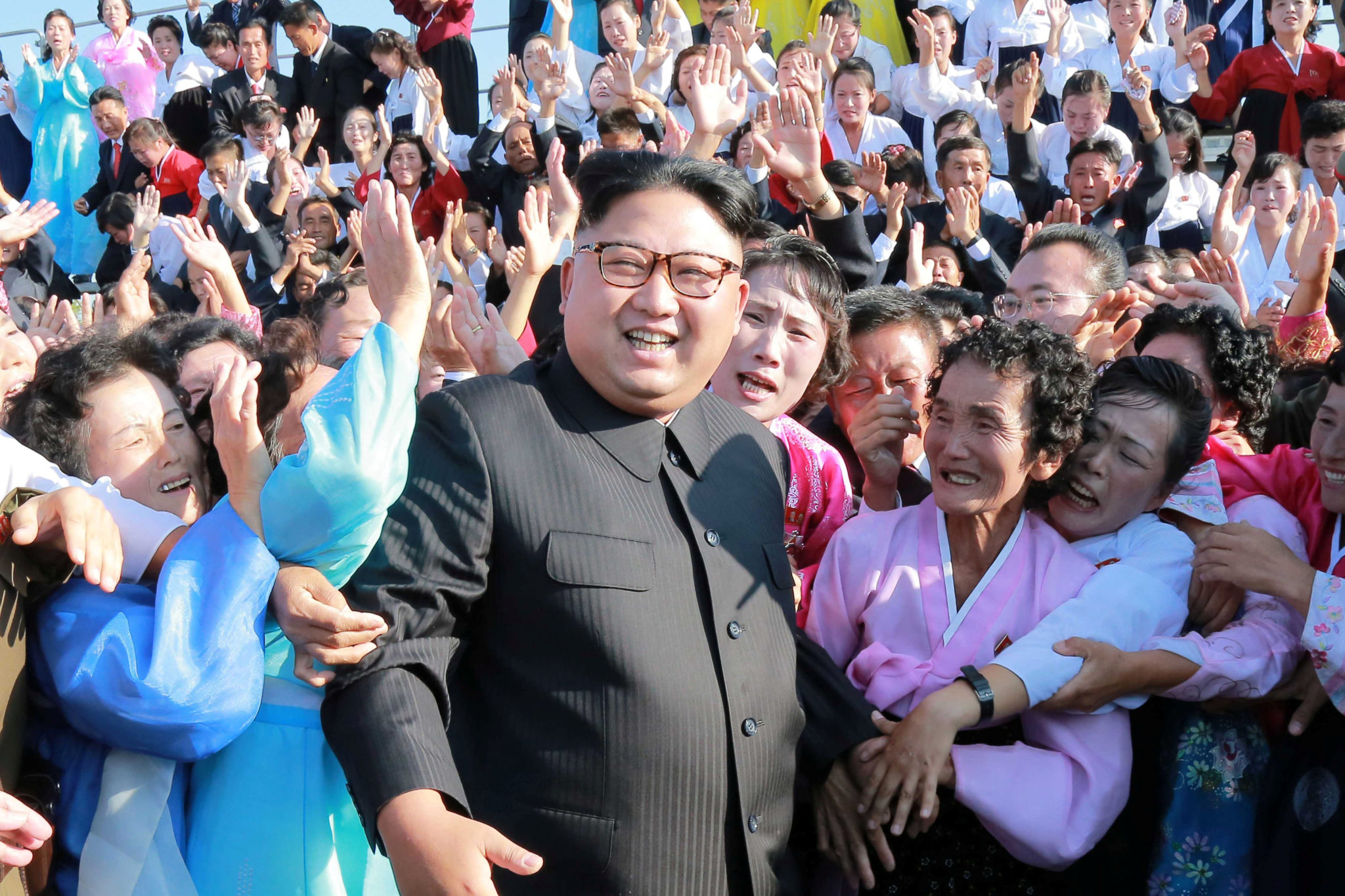 This is a developing story, please refresh for updates. North Korea surprised many observers when it celebrated its 69th birthday by simply throwing a party last weekend. Following its biggest nuclear test to date on September 3, the Hermit Kingdom’s restraint appeared as a refreshing respite.Well, restraint be damned.Pyongyang launched its 22nd missile of 2017 early Friday morning local time. The missile reportedly flew over Japan’s Hokkaido island before landing in the Pacific Ocean. Japanese citizens were immediately warned to take shelter, something they were forced to do on August 29, when Pyongyang flew a Hwasong-12 ballistic missile over the same island.But these tests also serve a purpose beyond eliciting an angry response from the U.S. and the international community.
This is a developing story, please refresh for updates. North Korea surprised many observers when it celebrated its 69th birthday by simply throwing a party last weekend. Following its biggest nuclear test to date on September 3, the Hermit Kingdom’s restraint appeared as a refreshing respite.Well, restraint be damned.Pyongyang launched its 22nd missile of 2017 early Friday morning local time. The missile reportedly flew over Japan’s Hokkaido island before landing in the Pacific Ocean. Japanese citizens were immediately warned to take shelter, something they were forced to do on August 29, when Pyongyang flew a Hwasong-12 ballistic missile over the same island.But these tests also serve a purpose beyond eliciting an angry response from the U.S. and the international community.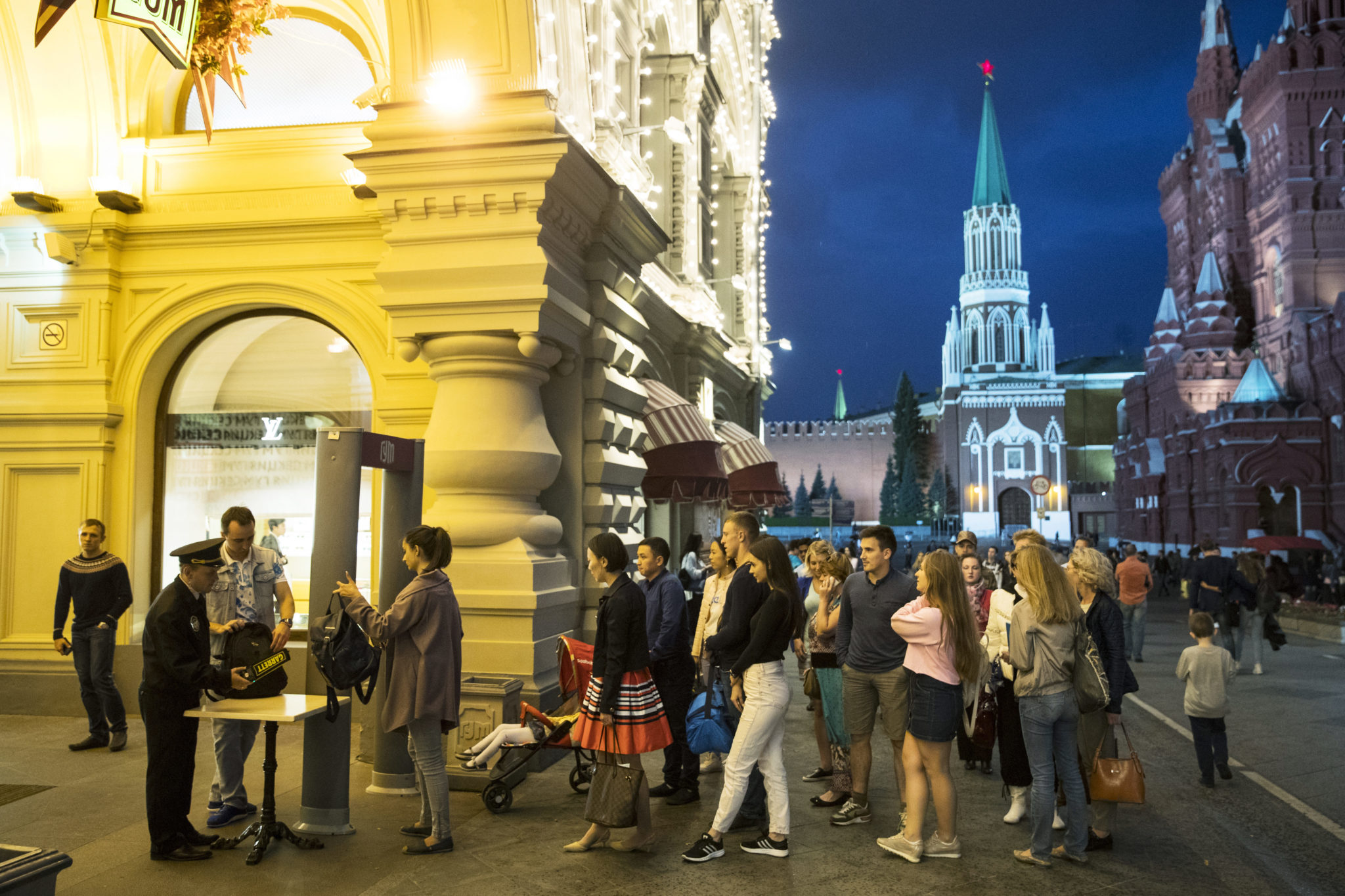 That’s how many people have been evacuated from 480 schools, hospitals, malls, train stations, airports, hotels and movie theaters across Russia over the past three days in an unprecedented tsunami of bomb threats.Nobody has been injured by a real bomb yet. Instead, people are being driven out into the streets by the thousands in a “telephone terrorism” campaign that seems to borrow heavily from ‘90s pranksters The Jerky Boys.The source of the calls, which began Sunday, remains mysterious. Though an unnamed security official has been cited in Russian media blaming ISIS, which was credited with a real bombing in the St. Petersburg metro in April that killed 15 people. Other reports indicate the calls are using internet telephony from IP addresses based in Ukraine, which has been fighting Russia-backed rebels on its eastern border.“There’s never been anything like this before, it’s 100% organized telephone terrorism,” Russian lawmaker Frants Klintsevich, deputy head of the Defense Committee in the upper house of parliament, told Bloomberg. “The only goal is to set off destructive processes, to sow panic.”The campaign hit a crescendo on Wednesday when 100,000 people were evacuated from 70 buildings in a single day, including even from Red Square itself right next to the Kremlin, according to Russian newswire Interfax. Fake bomb threats have targeted 20 schools in Moscow alone.All the children in the city of Perm were sent home following bomb threats on Tuesday, according to the mayor’s office, along with everyone at the local state university, bus station, railroad station, several shopping malls and an apartment building. Ten buildings were cleared out in the city of Yuzhno-Sakhalinsk on Sakhalin Island north of Japan, and two large malls were emptied in Vladivostok, the largest city near Russia’s border with North Korea.By evening on Thursday, another 20,000 people had been evacuated from 48 more buildings over the course of the day, bringing the three-day tally to 150,000 people from 480 buildings throughout the country, according to Russian state news agency RIA Novosti.— Greg Waters
That’s how many people have been evacuated from 480 schools, hospitals, malls, train stations, airports, hotels and movie theaters across Russia over the past three days in an unprecedented tsunami of bomb threats.Nobody has been injured by a real bomb yet. Instead, people are being driven out into the streets by the thousands in a “telephone terrorism” campaign that seems to borrow heavily from ‘90s pranksters The Jerky Boys.The source of the calls, which began Sunday, remains mysterious. Though an unnamed security official has been cited in Russian media blaming ISIS, which was credited with a real bombing in the St. Petersburg metro in April that killed 15 people. Other reports indicate the calls are using internet telephony from IP addresses based in Ukraine, which has been fighting Russia-backed rebels on its eastern border.“There’s never been anything like this before, it’s 100% organized telephone terrorism,” Russian lawmaker Frants Klintsevich, deputy head of the Defense Committee in the upper house of parliament, told Bloomberg. “The only goal is to set off destructive processes, to sow panic.”The campaign hit a crescendo on Wednesday when 100,000 people were evacuated from 70 buildings in a single day, including even from Red Square itself right next to the Kremlin, according to Russian newswire Interfax. Fake bomb threats have targeted 20 schools in Moscow alone.All the children in the city of Perm were sent home following bomb threats on Tuesday, according to the mayor’s office, along with everyone at the local state university, bus station, railroad station, several shopping malls and an apartment building. Ten buildings were cleared out in the city of Yuzhno-Sakhalinsk on Sakhalin Island north of Japan, and two large malls were emptied in Vladivostok, the largest city near Russia’s border with North Korea.By evening on Thursday, another 20,000 people had been evacuated from 48 more buildings over the course of the day, bringing the three-day tally to 150,000 people from 480 buildings throughout the country, according to Russian state news agency RIA Novosti.— Greg Waters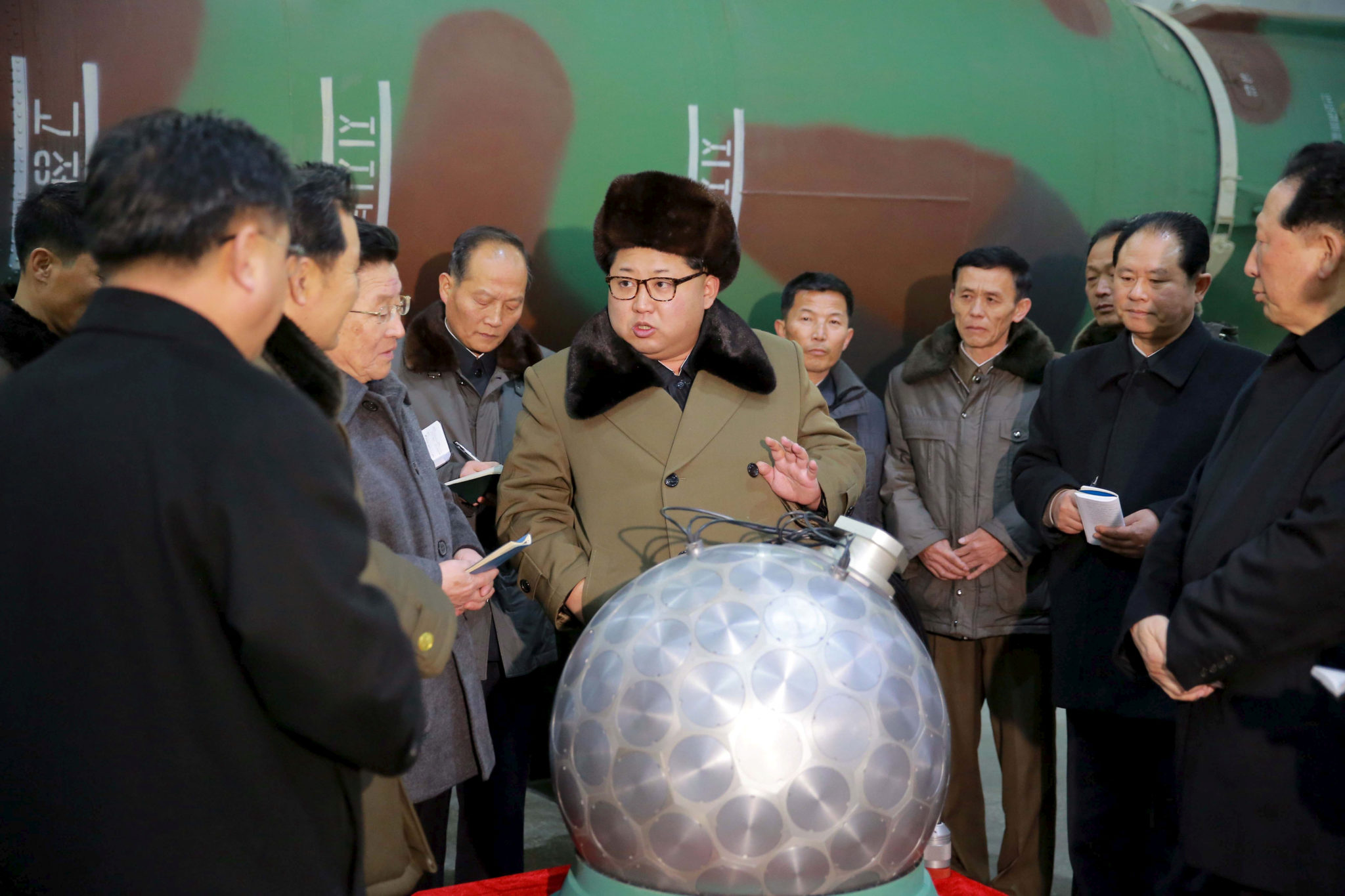 North Korea recently tested its biggest nuclear bomb yet — and now it’s threatening to use it on both the United States and Japan.“Japan is no longer needed to exist near us,” a North Korean foreign affairs committee said in a statement Thursday. “The four islands of the archipelago should be sunken into the sea.”North Korea’s nuclear test on Aug. 29 was so powerful that satellite images reportedly show it reshaped the mountain where it occurred in underground tunnels. The blast caused a 6.3-magnitude earthquake and depressed more than 85 acres of the mountain’s surface, according to Jeffrey Lewis, director of the East Asia Nonproliferation Program at Middlebury College.North Korea claimed it successfully tested a hydrogen bomb, and initial estimates by South Korea measured the explosion at 50 kilotons — about four times the size of the bomb the United States dropped on Hiroshima. Recent analysis suggests it may have been even larger. Independent experts at 38 North, a site affiliated with Johns Hopkins University that monitors North Korean nuclear activity, believe it was roughly 250 kilotons.Yoshihide Suga, Japan’s chief cabinet secretary, criticized North Korea’s latest threat.“This announcement is extremely provocative and egregious,” Suga said. “It is something that markedly heightens regional tension and is absolutely unacceptable.”North Korea’s latest announcement also threatened the United States.“Let’s reduce the U.S. mainland into ashes and darkness,” the regime’s Korea Asia-Pacific Peace Committee said. “Let’s vent our spite with mobilization of all retaliation means which have been prepared till now.”The United Nations Security Council unanimously voted to approve new sanctions on the country Monday, but independent experts warned that satellite imagery indicates that Pyongyang already appears to be preparing for another underground nuclear test.The United States hasn’t responded to Pyongyang’s latest threat, but North Korea is on Secretary of State Rex Tillerson’s agenda when he meets Thursday with British and French officials.— Diamond Naga SiuRead More: Kim Jong Un is going “seriously capitalist”
North Korea recently tested its biggest nuclear bomb yet — and now it’s threatening to use it on both the United States and Japan.“Japan is no longer needed to exist near us,” a North Korean foreign affairs committee said in a statement Thursday. “The four islands of the archipelago should be sunken into the sea.”North Korea’s nuclear test on Aug. 29 was so powerful that satellite images reportedly show it reshaped the mountain where it occurred in underground tunnels. The blast caused a 6.3-magnitude earthquake and depressed more than 85 acres of the mountain’s surface, according to Jeffrey Lewis, director of the East Asia Nonproliferation Program at Middlebury College.North Korea claimed it successfully tested a hydrogen bomb, and initial estimates by South Korea measured the explosion at 50 kilotons — about four times the size of the bomb the United States dropped on Hiroshima. Recent analysis suggests it may have been even larger. Independent experts at 38 North, a site affiliated with Johns Hopkins University that monitors North Korean nuclear activity, believe it was roughly 250 kilotons.Yoshihide Suga, Japan’s chief cabinet secretary, criticized North Korea’s latest threat.“This announcement is extremely provocative and egregious,” Suga said. “It is something that markedly heightens regional tension and is absolutely unacceptable.”North Korea’s latest announcement also threatened the United States.“Let’s reduce the U.S. mainland into ashes and darkness,” the regime’s Korea Asia-Pacific Peace Committee said. “Let’s vent our spite with mobilization of all retaliation means which have been prepared till now.”The United Nations Security Council unanimously voted to approve new sanctions on the country Monday, but independent experts warned that satellite imagery indicates that Pyongyang already appears to be preparing for another underground nuclear test.The United States hasn’t responded to Pyongyang’s latest threat, but North Korea is on Secretary of State Rex Tillerson’s agenda when he meets Thursday with British and French officials.— Diamond Naga SiuRead More: Kim Jong Un is going “seriously capitalist”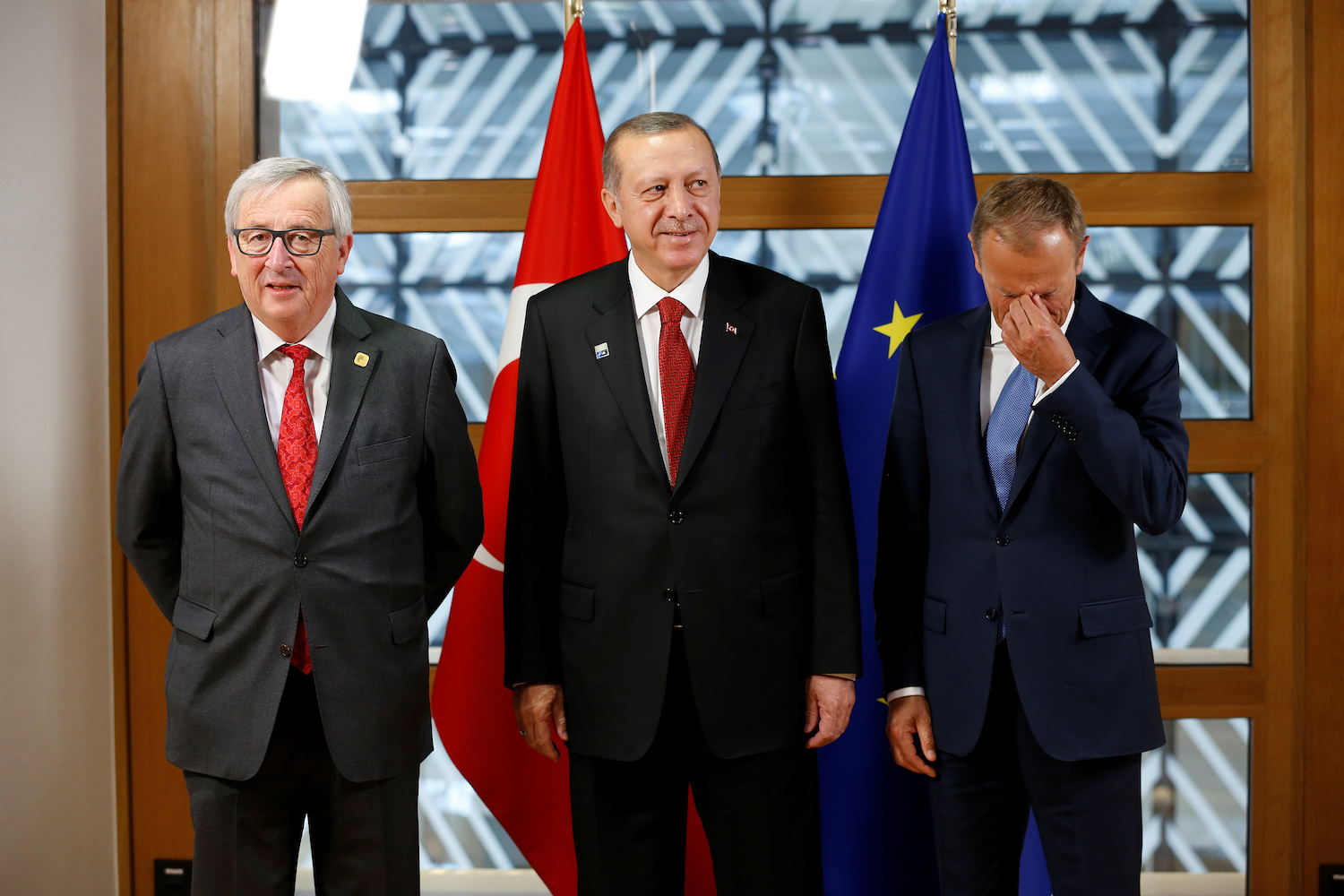 Turkey has spent the past half-century on a long and wobbly path toward joining the European Union.On Wednesday, a senior EU official finally pronounced the journey over.“Accession candidates must give the rule of law, justice and fundamental rights utmost priority,” said European Commission President Jean-Claude Juncker. “This rules out EU membership for Turkey for the foreseeable future.”Now, analysts are asking what the fallout will be for Europe, which has relied on Turkey to hold back a flood of refugees and provide crucial support to the U.S.-led fight against ISIS.Turkey has since threatened to renounce the deal if Europe doesn’t grant Turkish citizens visa-free travel, prompting Sigmar Gabriel, now Germany’s foreign minister, to respond that Germany “should not let itself be blackmailed.”The dynamic left Europe in a bind, Mounk said.“Turkey represents a deep challenge for Merkel,” said Mounk. “She desperately needs Erdoğan in order to keep the refugees out. At the same time, she clearly abhors him.”On Sunday, Merkel herself finally declared, during a debate ahead of Sept. 24 elections, that Turkey’s EU membership should be off the table.: “The fact is clear that Turkey should not become a member of the EU.”On Wednesday, Juncker piled on.“Journalists belong in newsrooms not in prisons,” he said. “Let our journalists go. And not just them either. Stop insulting our member states by comparing their leaders to fascists and Nazis. Europe is a continent of mature democracies.”Juncker accused Turkey of sabotaging accession talks and then trying to place the blame on Europe.“Insults create roadblocks,” he said. “Sometimes I get the feeling Turkey is intentionally placing these roadblocks so that it can blame Europe for any breakdown in accession talks.”How Turkey will react remains to be seen — either in refugee policies, or in its cooperation with the NATO military alliance in ongoing operations.— Greg Walters For many young North Korean students, rehearsing for one of the country’s famously choreographed parades is almost a rite of passage. So when longtime North Korea aid worker Katharina Zellweger walked along Pyongyang’s Kim Il Sung Square this past spring and observed a group of students in rehearsal, it looked pretty routine.But then the students disbanded for lunch, and they did something that would have been unthinkable just a few years ago: They whipped out their cellphones. And like other teenagers around the world, with heads bowed and eyes glazed, they started texting and snapping photos.“It was like anywhere else,” she recalled. “Boys and girls, all on their mobile phones.”For Zellweger, the episode reflected just how much North Korea has evolved from a place where toothpaste and soap had been luxuries not so long ago.This change has paralleled Kim Jong Un’s rise and consolidation of power over the past five years. His defiant display of nuclear advancements in the face of constant international condemnation, and his brazen assassinations of both his uncle and half-brother, have revealed a young despot far more cruel and clever than his father Kim Jong Il ever was.But in tandem with these hard lines, observers say, he’s also adopted an unexpectedly pro-market economic strategy, and the Hermit Kingdom has never looked more like a normal country. Despite the apparent dissonance, Kim’s nuclear program and economic agenda are actually two components of a single policy, dubbed the “byungjin line”: Becoming a true nuclear power assures North Korea an untouchable status, and economic prosperity ensures that the country’s elites and emerging consumer class won’t turn against him.— Melissa ChanRead More: Kim Jong Un is going “seriously capitalist”
Turkey has spent the past half-century on a long and wobbly path toward joining the European Union.On Wednesday, a senior EU official finally pronounced the journey over.“Accession candidates must give the rule of law, justice and fundamental rights utmost priority,” said European Commission President Jean-Claude Juncker. “This rules out EU membership for Turkey for the foreseeable future.”Now, analysts are asking what the fallout will be for Europe, which has relied on Turkey to hold back a flood of refugees and provide crucial support to the U.S.-led fight against ISIS.Turkey has since threatened to renounce the deal if Europe doesn’t grant Turkish citizens visa-free travel, prompting Sigmar Gabriel, now Germany’s foreign minister, to respond that Germany “should not let itself be blackmailed.”The dynamic left Europe in a bind, Mounk said.“Turkey represents a deep challenge for Merkel,” said Mounk. “She desperately needs Erdoğan in order to keep the refugees out. At the same time, she clearly abhors him.”On Sunday, Merkel herself finally declared, during a debate ahead of Sept. 24 elections, that Turkey’s EU membership should be off the table.: “The fact is clear that Turkey should not become a member of the EU.”On Wednesday, Juncker piled on.“Journalists belong in newsrooms not in prisons,” he said. “Let our journalists go. And not just them either. Stop insulting our member states by comparing their leaders to fascists and Nazis. Europe is a continent of mature democracies.”Juncker accused Turkey of sabotaging accession talks and then trying to place the blame on Europe.“Insults create roadblocks,” he said. “Sometimes I get the feeling Turkey is intentionally placing these roadblocks so that it can blame Europe for any breakdown in accession talks.”How Turkey will react remains to be seen — either in refugee policies, or in its cooperation with the NATO military alliance in ongoing operations.— Greg Walters For many young North Korean students, rehearsing for one of the country’s famously choreographed parades is almost a rite of passage. So when longtime North Korea aid worker Katharina Zellweger walked along Pyongyang’s Kim Il Sung Square this past spring and observed a group of students in rehearsal, it looked pretty routine.But then the students disbanded for lunch, and they did something that would have been unthinkable just a few years ago: They whipped out their cellphones. And like other teenagers around the world, with heads bowed and eyes glazed, they started texting and snapping photos.“It was like anywhere else,” she recalled. “Boys and girls, all on their mobile phones.”For Zellweger, the episode reflected just how much North Korea has evolved from a place where toothpaste and soap had been luxuries not so long ago.This change has paralleled Kim Jong Un’s rise and consolidation of power over the past five years. His defiant display of nuclear advancements in the face of constant international condemnation, and his brazen assassinations of both his uncle and half-brother, have revealed a young despot far more cruel and clever than his father Kim Jong Il ever was.But in tandem with these hard lines, observers say, he’s also adopted an unexpectedly pro-market economic strategy, and the Hermit Kingdom has never looked more like a normal country. Despite the apparent dissonance, Kim’s nuclear program and economic agenda are actually two components of a single policy, dubbed the “byungjin line”: Becoming a true nuclear power assures North Korea an untouchable status, and economic prosperity ensures that the country’s elites and emerging consumer class won’t turn against him.— Melissa ChanRead More: Kim Jong Un is going “seriously capitalist”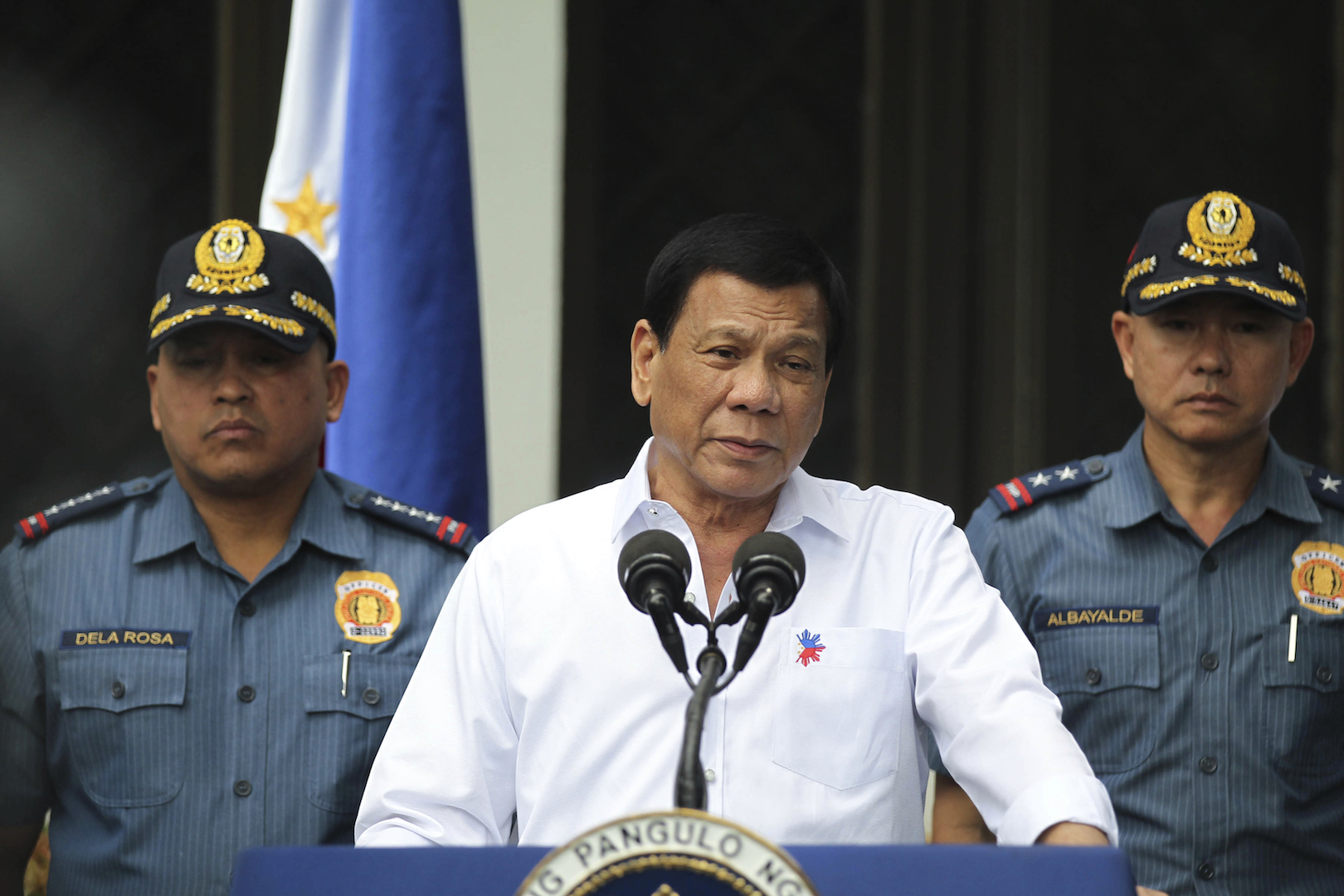 That’s how much the lower house of Congress in the Philippines just voted to allocate the state office charged with investigating human rights violations by the police.Coincidentally, those are the same police carrying out President Rodrigo Duterte’s infamously brutal anti-narcotics crackdown. At least 7,000 have died in a campaign featuring summary executions, falsified evidence and the “deliberate” targeting of children, according to groups like Human Rights Watch. Most of the victims are small-time users and peddlers.Public anger has been rising as the death toll climbs, especially after CCTV recently captured police dragging a 17-year-old boy into an alley, telling him to run and then shooting him three times.Duterte himself has chafed under criticism of his government’s own watchdog group, known as the Commission for Human Rights. He once called for the office to be abolished, only to later claim he was joking.Now, Duterte’s allies in Congress have a new plan for responding to the criticism: slash the watchdog’s budget to almost nothing.In a vote Tuesday, lawmakers in the lower house approved cutting the commission’s annual budget to just $19.63.By contrast, the 2017 budget was $14.7 million.Laughter could be heard in the chamber during the vote as the final tally reached 119 lawmakers in favor of the reduction, 32 opposed.“If you want to protect the rights of criminals, get your budget from the criminals,” speaker of the house, Pantaleon Alvarez, said in an interview after the vote. “It’s that simple. Why should you get budget from the government and yet you are not doing your job?”“We are saddened by this whimsical and capricious display of vindictiveness,” said the chairman of the commission, Jose Luis Martin Gascon.The agency vowed to continue its work.“Despite these circumstances, we will not turn our backs on our Constitutional duty to render justice for all,” the agency said in a statement. “We shall seek means to move forward.”International rights groups slammed the vote, calling it one more step in Duterte’s campaign to eviscerate internal opposition to his violent tactics.“This move by lawmakers to deny funding to the commission is a very sinister development,” Phelim Kine of Human Rights Watch told VICE News Tuesday. “Just when you thought Duterte’s murderous war on drugs couldn’t get any worse, it does.”—Greg Walters
That’s how much the lower house of Congress in the Philippines just voted to allocate the state office charged with investigating human rights violations by the police.Coincidentally, those are the same police carrying out President Rodrigo Duterte’s infamously brutal anti-narcotics crackdown. At least 7,000 have died in a campaign featuring summary executions, falsified evidence and the “deliberate” targeting of children, according to groups like Human Rights Watch. Most of the victims are small-time users and peddlers.Public anger has been rising as the death toll climbs, especially after CCTV recently captured police dragging a 17-year-old boy into an alley, telling him to run and then shooting him three times.Duterte himself has chafed under criticism of his government’s own watchdog group, known as the Commission for Human Rights. He once called for the office to be abolished, only to later claim he was joking.Now, Duterte’s allies in Congress have a new plan for responding to the criticism: slash the watchdog’s budget to almost nothing.In a vote Tuesday, lawmakers in the lower house approved cutting the commission’s annual budget to just $19.63.By contrast, the 2017 budget was $14.7 million.Laughter could be heard in the chamber during the vote as the final tally reached 119 lawmakers in favor of the reduction, 32 opposed.“If you want to protect the rights of criminals, get your budget from the criminals,” speaker of the house, Pantaleon Alvarez, said in an interview after the vote. “It’s that simple. Why should you get budget from the government and yet you are not doing your job?”“We are saddened by this whimsical and capricious display of vindictiveness,” said the chairman of the commission, Jose Luis Martin Gascon.The agency vowed to continue its work.“Despite these circumstances, we will not turn our backs on our Constitutional duty to render justice for all,” the agency said in a statement. “We shall seek means to move forward.”International rights groups slammed the vote, calling it one more step in Duterte’s campaign to eviscerate internal opposition to his violent tactics.“This move by lawmakers to deny funding to the commission is a very sinister development,” Phelim Kine of Human Rights Watch told VICE News Tuesday. “Just when you thought Duterte’s murderous war on drugs couldn’t get any worse, it does.”—Greg Walters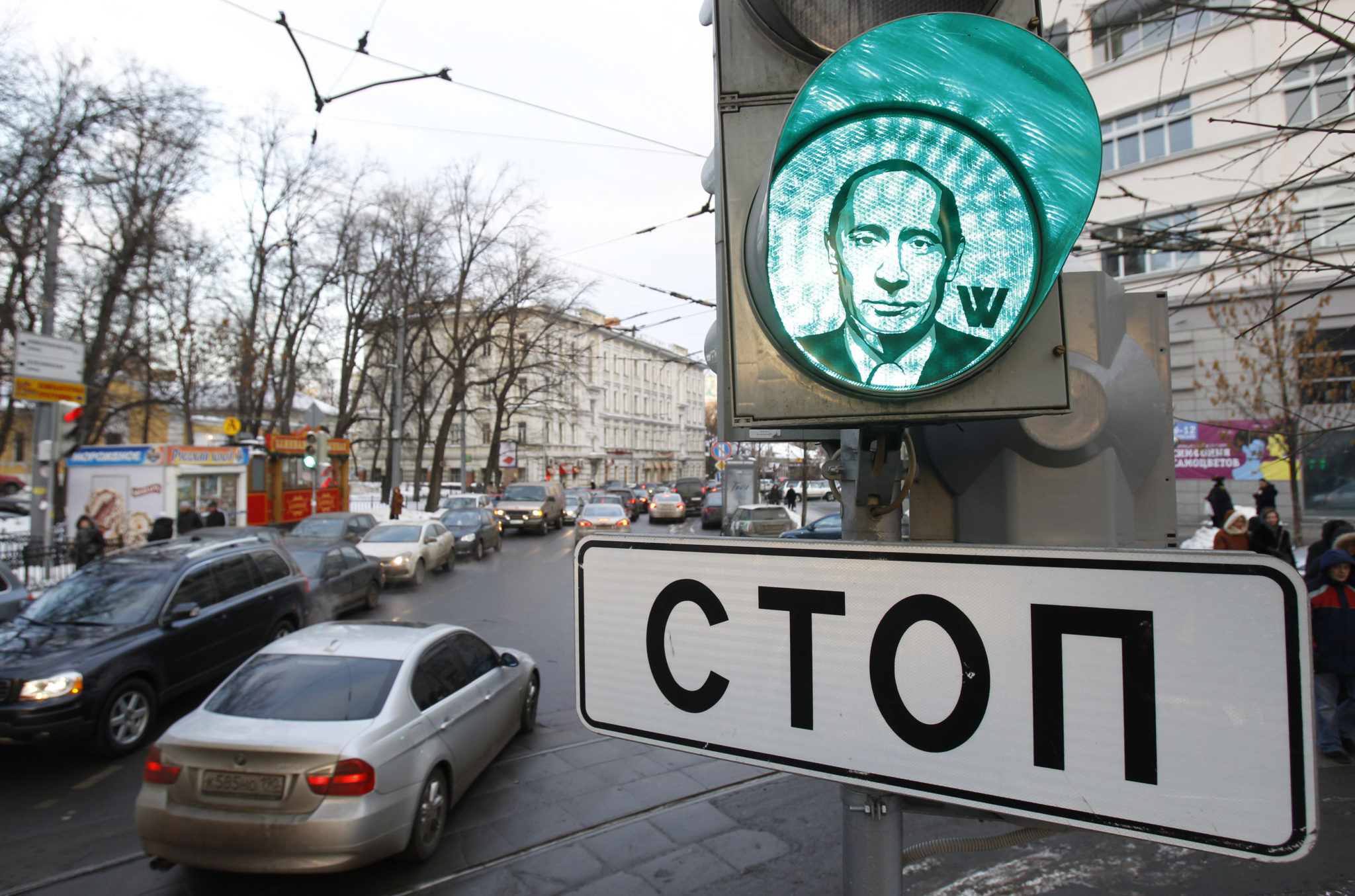 The Kremlin has found a new way to get revenge on the Trump administration, and is taking the spiraling U.S.-Russia diplomatic spat to the streets: Russia wants American diplomats to experience the full horror of finding a parking spot in Moscow.Russian officials may revoke U.S. diplomatic envoys’ access to reserved parking spaces near the American embassy in Moscow as well as at diplomatic missions in other cities, according to a report in daily newspaper Kommersant on Monday citing unnamed sources. They’re also considering fresh domestic travel restrictions and reducing the number of permissible entry points into the country.Those steps would come in response to the forced closure of three Russian diplomatic outposts in the U.S. last month.The changes aim to establish “full parity” in bilateral relations between the two countries, sources told the paper. And Russian diplomats don’t get fancy parking.Moscow traffic is notoriously God-awful, although it’s recently improved to become only the third-worst in Europe, according to GPS manufacturer TomTom.—Greg WaltersCOX’S BAZAR, Bangladesh — “They beat me and slit my throat,” said Rashida, 25. She was sitting on a plastic chair, weak and waiting for an ambulance. We were a few feet from the border where she’d just crossed into Bangladesh after fleeing her village in Myanmar’s northern Rakhine state eight days earlier.“My baby is dead, my husband is dead,” she said. Her breath came in rasps that echoed from her throat. Two deep lacerations that cut across her neck appeared infected. She had not yet received medical attention since being brutally assaulted by a mob of armed men.
The Kremlin has found a new way to get revenge on the Trump administration, and is taking the spiraling U.S.-Russia diplomatic spat to the streets: Russia wants American diplomats to experience the full horror of finding a parking spot in Moscow.Russian officials may revoke U.S. diplomatic envoys’ access to reserved parking spaces near the American embassy in Moscow as well as at diplomatic missions in other cities, according to a report in daily newspaper Kommersant on Monday citing unnamed sources. They’re also considering fresh domestic travel restrictions and reducing the number of permissible entry points into the country.Those steps would come in response to the forced closure of three Russian diplomatic outposts in the U.S. last month.The changes aim to establish “full parity” in bilateral relations between the two countries, sources told the paper. And Russian diplomats don’t get fancy parking.Moscow traffic is notoriously God-awful, although it’s recently improved to become only the third-worst in Europe, according to GPS manufacturer TomTom.—Greg WaltersCOX’S BAZAR, Bangladesh — “They beat me and slit my throat,” said Rashida, 25. She was sitting on a plastic chair, weak and waiting for an ambulance. We were a few feet from the border where she’d just crossed into Bangladesh after fleeing her village in Myanmar’s northern Rakhine state eight days earlier.“My baby is dead, my husband is dead,” she said. Her breath came in rasps that echoed from her throat. Two deep lacerations that cut across her neck appeared infected. She had not yet received medical attention since being brutally assaulted by a mob of armed men.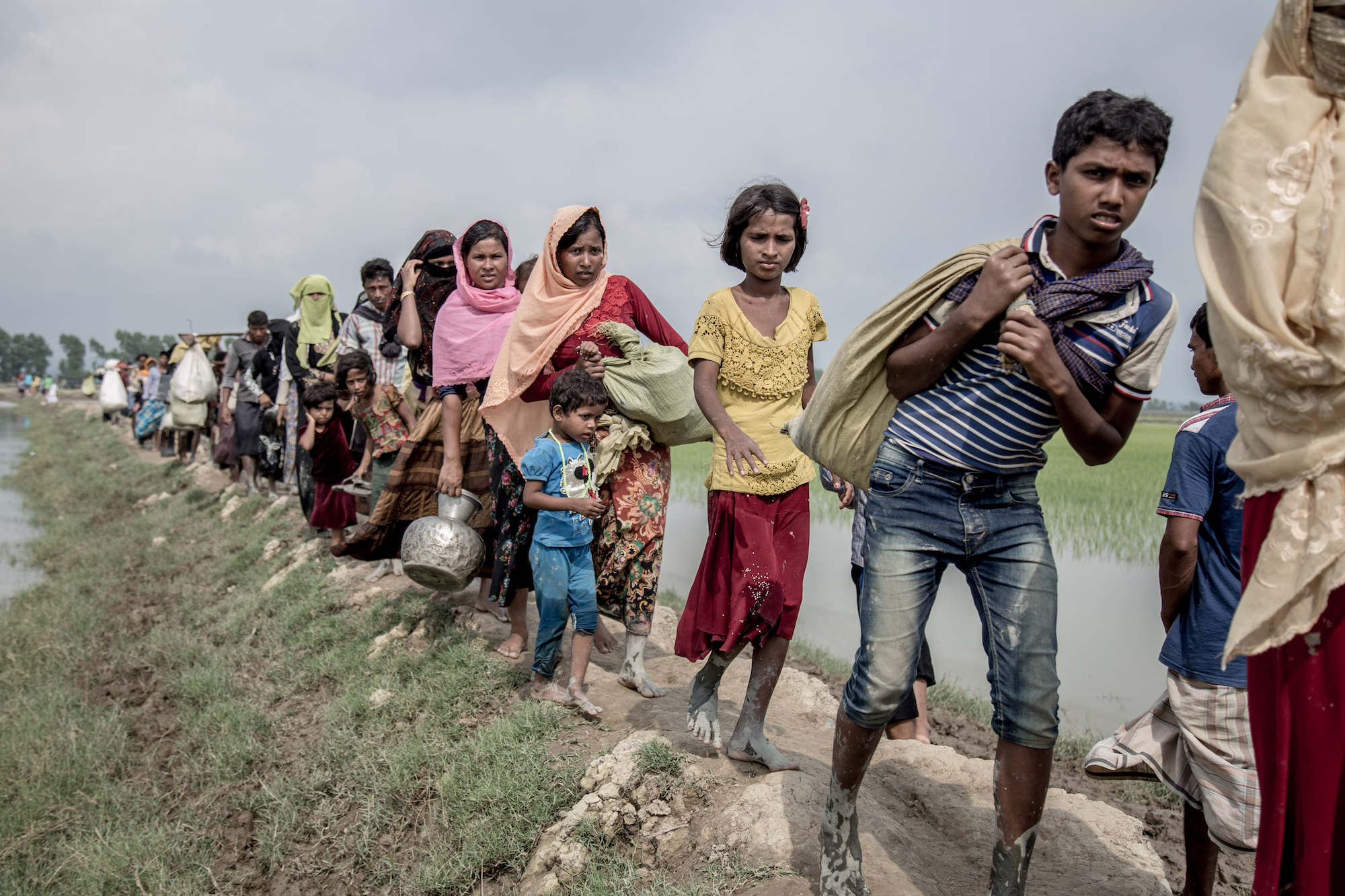 With their mass exodus into Bangladesh, Rohingya refugees like Rashida are bringing with them stories of murder, rape and torture at the hands of Myanmar’s security forces and ultranationalist buddhists. Myanmar’s military says it’s conducting a “clearance operation” against Rohingya insurgents behind a series of deadly attacks in late August, but accounts from survivors like Rashida tell a decidedly different story.Rashida’s village, Tula Toli, was subject to one of the most gruesome military attacks to be recorded since Rohingya Muslims began flooding into Bangladesh by the tens of thousands two weeks ago.— Kathleen Prior Read more: A Rohingya refugee recalls her escape from Myanmar
With their mass exodus into Bangladesh, Rohingya refugees like Rashida are bringing with them stories of murder, rape and torture at the hands of Myanmar’s security forces and ultranationalist buddhists. Myanmar’s military says it’s conducting a “clearance operation” against Rohingya insurgents behind a series of deadly attacks in late August, but accounts from survivors like Rashida tell a decidedly different story.Rashida’s village, Tula Toli, was subject to one of the most gruesome military attacks to be recorded since Rohingya Muslims began flooding into Bangladesh by the tens of thousands two weeks ago.— Kathleen Prior Read more: A Rohingya refugee recalls her escape from Myanmar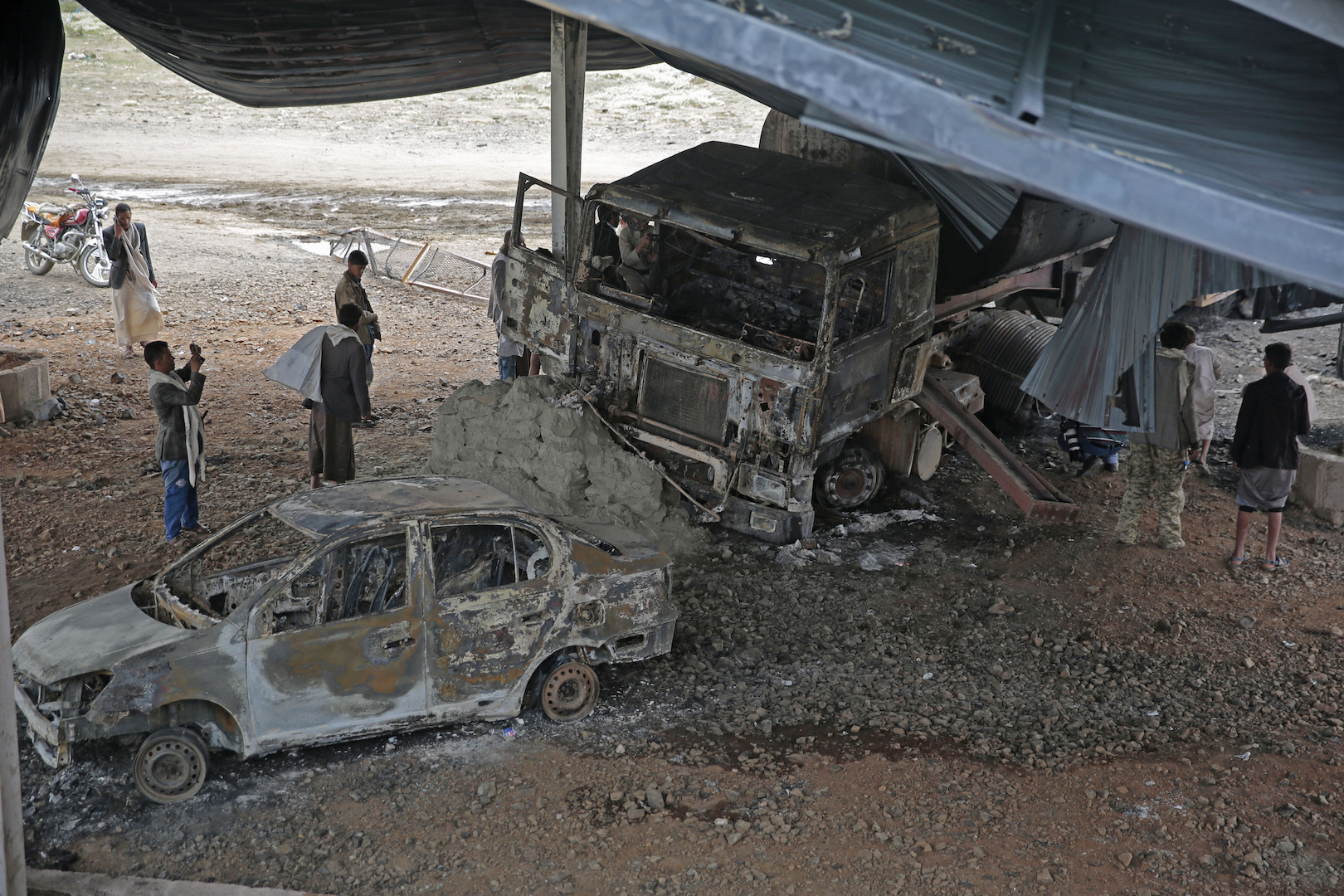 Abdulrahman al-Dhurafi had just finished his morning prayers in Yemen’s northwestern city of Saada on August 4, when a blast from an almighty explosion shook his house. Minutes later, a friend called to tell him his nephew’s home had just been destroyed in an airstrike from the Saudi-led coalition that has been bombarding the country since 2015.Al-Dhurafi, general director of the Education Ministry’s office in Saada, rushed to the scene to find a neighbor running from the rubble of the flattened house, the body of a young girl in his arms. It was two-year-old Batool al-Dhurafi, his nephew’s youngest daughter. The blast had killed her and her five siblings – the eldest just 12 – as well as her mother, grandmother, and 17-year-old cousin. In total, nine civilians were killed.The bloody assault on the al-Dhurafis’ home is one of five recent Saudi-led strikes in Yemen since June that amount to war crimes, Human Rights Watch alleged in a statement Tuesday.The memo, from which the account of the al-Dhurafi deaths is taken, documents 39 civilian deaths – 26 of them children – in five recent airstrikes which the human rights group says caused such indiscriminate loss of life that they are in violation of the rules of war.“We had repeatedly heard that the (Saudi-led) coalition would tighten its rules of engagement, so we looked at these strikes since the promise was made,” Kristine Beckerle, Human Rights Watch’s Yemen researcher, told VICE News.— Tim HumeRead more: Saudi Arabia accused of war crimes in Yemen over airstrikesThe United Nations Security Council approved its toughest sanctions yet against North Korea Monday, responding to the hermit kingdom’s latest and largest nuclear test last week, though not as strongly as the Trump administration had once set out to do.The sanctions ban natural gas imports as well as textile exports. It also bans countries from giving North Korean workers new work permits. But the sanctions don’t ban all oil imports, nor do they freeze the North Korean government’s and Kim Jong Un’s assets — both conditions the Trump administration had vehemently argued for a week earlier.The weaker resolution received the approval of all 15 security council countries, including Russia and China, both of whom have been especially critical of using sanctions to quell the escalating tensions with North Korea.Russian President Vladimir Putin last week called additional sanctions against Pyongyang “useless and ineffective,” emphasizing that diplomacy was the only way to resolve North Korea.Chinese Foreign Ministry spokesman Geng Shuang has repeatedly emphasized that China would seek to “resolve issue through dialogue and consultation.”“Today, we are saying the world will never accept a nuclear-armed North Korea,” said Nikki Haley, the U.S. ambassador to the United Nations. “And today the Security Council is saying if North Korea does not halt its nuclear program, we will act to stop it ourselves.”Though Trump once said that “talking is not the answer,”Haley emphasized Monday that diplomatic options were still very much on the table. “North Korea has not yet passed the point of no return,” she said after the sanctions were passed.North Korea has repeatedly threatened to inflict “pain and suffering” on the United States in retaliation for additional sanctions.“The forthcoming measures to be taken by the DPRK will cause the US the greatest pain and suffering it had ever gone through in its entire history,” the foreign ministry said in a statement by the state’s official news outlet, KCNA.— Alexa Liautaud
Abdulrahman al-Dhurafi had just finished his morning prayers in Yemen’s northwestern city of Saada on August 4, when a blast from an almighty explosion shook his house. Minutes later, a friend called to tell him his nephew’s home had just been destroyed in an airstrike from the Saudi-led coalition that has been bombarding the country since 2015.Al-Dhurafi, general director of the Education Ministry’s office in Saada, rushed to the scene to find a neighbor running from the rubble of the flattened house, the body of a young girl in his arms. It was two-year-old Batool al-Dhurafi, his nephew’s youngest daughter. The blast had killed her and her five siblings – the eldest just 12 – as well as her mother, grandmother, and 17-year-old cousin. In total, nine civilians were killed.The bloody assault on the al-Dhurafis’ home is one of five recent Saudi-led strikes in Yemen since June that amount to war crimes, Human Rights Watch alleged in a statement Tuesday.The memo, from which the account of the al-Dhurafi deaths is taken, documents 39 civilian deaths – 26 of them children – in five recent airstrikes which the human rights group says caused such indiscriminate loss of life that they are in violation of the rules of war.“We had repeatedly heard that the (Saudi-led) coalition would tighten its rules of engagement, so we looked at these strikes since the promise was made,” Kristine Beckerle, Human Rights Watch’s Yemen researcher, told VICE News.— Tim HumeRead more: Saudi Arabia accused of war crimes in Yemen over airstrikesThe United Nations Security Council approved its toughest sanctions yet against North Korea Monday, responding to the hermit kingdom’s latest and largest nuclear test last week, though not as strongly as the Trump administration had once set out to do.The sanctions ban natural gas imports as well as textile exports. It also bans countries from giving North Korean workers new work permits. But the sanctions don’t ban all oil imports, nor do they freeze the North Korean government’s and Kim Jong Un’s assets — both conditions the Trump administration had vehemently argued for a week earlier.The weaker resolution received the approval of all 15 security council countries, including Russia and China, both of whom have been especially critical of using sanctions to quell the escalating tensions with North Korea.Russian President Vladimir Putin last week called additional sanctions against Pyongyang “useless and ineffective,” emphasizing that diplomacy was the only way to resolve North Korea.Chinese Foreign Ministry spokesman Geng Shuang has repeatedly emphasized that China would seek to “resolve issue through dialogue and consultation.”“Today, we are saying the world will never accept a nuclear-armed North Korea,” said Nikki Haley, the U.S. ambassador to the United Nations. “And today the Security Council is saying if North Korea does not halt its nuclear program, we will act to stop it ourselves.”Though Trump once said that “talking is not the answer,”Haley emphasized Monday that diplomatic options were still very much on the table. “North Korea has not yet passed the point of no return,” she said after the sanctions were passed.North Korea has repeatedly threatened to inflict “pain and suffering” on the United States in retaliation for additional sanctions.“The forthcoming measures to be taken by the DPRK will cause the US the greatest pain and suffering it had ever gone through in its entire history,” the foreign ministry said in a statement by the state’s official news outlet, KCNA.— Alexa Liautaud Godwin’s Law states that the longer an argument goes on online, the more likely it is someone will accuse someone else of being a Nazi. A common extension holds that whoever makes that charge first will lose the argument.Germany’s Foreign Minister Sigmar Gabriel threw caution to the wind Monday when he slapped the label on his country’s ultra-nationalist party, Alternative for Deutschland, or AfD. He added an extra adjective so there was no confusion, warning the public that “real Nazis” are poised to return to Germany’s parliament for the first time since Hitler’s defeat.When it comes to “real Nazis,” Gabriel should know. His own father remained an unrepentant Nazi until the day he died in 2012.Recent polls show the AfD is poised to win 8 percent to 11 percent of the vote in the Sept. 24 election, enough to make it the third-biggest group in parliament. Gabriel said the AfD is taking advantage of Germans’ unaddressed concerns about immigration, security, and jobs, especially in depressed eastern Germany.“If we’re unlucky, then these people will send a signal of dissatisfaction that will have terrible consequences. Then we will have real Nazis in the German Reichstag for the first time since the end of World War Two,” Gabriel said in an interview with the internet provider t-online.de.The AfD has attracted plenty of criticism for its vitriolic stance on race, religion and immigration, while also winning support from a vocal minority, especially after Prime Minister Angela Merkel’s controversial decision to throw open Germany’s doors to Syrian refugees in 2015.On Monday Germany’s justice minister warned that several of the planks in AfD’s electoral manifesto appear to be outright illegal, such as the party’s promise to ban Muslim minarets if it wins power.Meanwhile, the AfD’s top candidate, Alexander Gauland, is facing possible charges of incitement from the prosecutor’s office in the small central German city of Mühlhausen after Gauland told a campaign event there that German Integration Minister Aydan Özoguz needs to be “disposed of.”While comparisons to Hitler’s party are rare in modern German politics, Gabriel has tip-toed up to that line before with regard to the AfD, telling the Funke Media Group in June: “Everything that they are saying, I’ve already heard — just to be clear — from my own father, who was a Nazi to his last breath.”Chancellor Angela Merkel’s conservatives are leading in the polls with 37 percent. Gabriel’s own Social Democrats are second, with 22 percent.— Greg WaltersRead more: Germany is trying to get neo-Nazis out of its military
Godwin’s Law states that the longer an argument goes on online, the more likely it is someone will accuse someone else of being a Nazi. A common extension holds that whoever makes that charge first will lose the argument.Germany’s Foreign Minister Sigmar Gabriel threw caution to the wind Monday when he slapped the label on his country’s ultra-nationalist party, Alternative for Deutschland, or AfD. He added an extra adjective so there was no confusion, warning the public that “real Nazis” are poised to return to Germany’s parliament for the first time since Hitler’s defeat.When it comes to “real Nazis,” Gabriel should know. His own father remained an unrepentant Nazi until the day he died in 2012.Recent polls show the AfD is poised to win 8 percent to 11 percent of the vote in the Sept. 24 election, enough to make it the third-biggest group in parliament. Gabriel said the AfD is taking advantage of Germans’ unaddressed concerns about immigration, security, and jobs, especially in depressed eastern Germany.“If we’re unlucky, then these people will send a signal of dissatisfaction that will have terrible consequences. Then we will have real Nazis in the German Reichstag for the first time since the end of World War Two,” Gabriel said in an interview with the internet provider t-online.de.The AfD has attracted plenty of criticism for its vitriolic stance on race, religion and immigration, while also winning support from a vocal minority, especially after Prime Minister Angela Merkel’s controversial decision to throw open Germany’s doors to Syrian refugees in 2015.On Monday Germany’s justice minister warned that several of the planks in AfD’s electoral manifesto appear to be outright illegal, such as the party’s promise to ban Muslim minarets if it wins power.Meanwhile, the AfD’s top candidate, Alexander Gauland, is facing possible charges of incitement from the prosecutor’s office in the small central German city of Mühlhausen after Gauland told a campaign event there that German Integration Minister Aydan Özoguz needs to be “disposed of.”While comparisons to Hitler’s party are rare in modern German politics, Gabriel has tip-toed up to that line before with regard to the AfD, telling the Funke Media Group in June: “Everything that they are saying, I’ve already heard — just to be clear — from my own father, who was a Nazi to his last breath.”Chancellor Angela Merkel’s conservatives are leading in the polls with 37 percent. Gabriel’s own Social Democrats are second, with 22 percent.— Greg WaltersRead more: Germany is trying to get neo-Nazis out of its military Nearly 300,000 of Myanmar’s Rohingya Muslims have been driven from their homes by an indiscriminate military campaign of mass killings, rapes, and arson that the United Nations has likened to ethnic cleansing. Now even their escape route has been compromised, after Myanmar’s army allegedly planted landmines at crossing points used by refugees fleeing the bloodshed, according to one human rights group.Amnesty International reported two new mine injuries Sunday at crossing points along the border with Bangladesh, where hundreds of thousands of desperate Rohingya have fled in the past two weeks.“All indications point to the Myanmar security forces deliberately targeting locations that Rohingya refugees use as crossing points,” said Tirana Hassan, Amnesty International’s crisis response director.“This a cruel and callous way of adding to the misery of people fleeing a systematic campaign of persecution.”The latest injuries, one of which blew off a Bangladeshi farmer’s leg and another which wounded a Rohingya man, followed a death and serious injuries to at least three civilians, including two children, linked to landmines in the area in recent weeks, according to Amnesty. Myanmar’s military is one of only a few national armies around the world, along with North Korea and Syria, to openly use anti-personnel landmines.The current crisis in Myanmar’s western Rakhine state began Aug. 25 after a Rohingya insurgent group launched deadly attacks on security posts. Myanmar’s army, backed by Buddhist mobs, responded with a brutal and indiscriminate military offensive that the U.N.’s human rights chief said Monday “seems a textbook example of ethnic cleansing.”— Tim Hume
Read earlier updates from the VICE News Guide to the World: Week of September 4.
Nearly 300,000 of Myanmar’s Rohingya Muslims have been driven from their homes by an indiscriminate military campaign of mass killings, rapes, and arson that the United Nations has likened to ethnic cleansing. Now even their escape route has been compromised, after Myanmar’s army allegedly planted landmines at crossing points used by refugees fleeing the bloodshed, according to one human rights group.Amnesty International reported two new mine injuries Sunday at crossing points along the border with Bangladesh, where hundreds of thousands of desperate Rohingya have fled in the past two weeks.“All indications point to the Myanmar security forces deliberately targeting locations that Rohingya refugees use as crossing points,” said Tirana Hassan, Amnesty International’s crisis response director.“This a cruel and callous way of adding to the misery of people fleeing a systematic campaign of persecution.”The latest injuries, one of which blew off a Bangladeshi farmer’s leg and another which wounded a Rohingya man, followed a death and serious injuries to at least three civilians, including two children, linked to landmines in the area in recent weeks, according to Amnesty. Myanmar’s military is one of only a few national armies around the world, along with North Korea and Syria, to openly use anti-personnel landmines.The current crisis in Myanmar’s western Rakhine state began Aug. 25 after a Rohingya insurgent group launched deadly attacks on security posts. Myanmar’s army, backed by Buddhist mobs, responded with a brutal and indiscriminate military offensive that the U.N.’s human rights chief said Monday “seems a textbook example of ethnic cleansing.”— Tim Hume
Read earlier updates from the VICE News Guide to the World: Week of September 4.
Iraq — September 15, 2017
Iraq’s Kurds setreferendum date despite international outcry

Advertisement
Advertisement
Brazil — September 15, 2017
Brazilian President Temer facing criminal charges… again

On Thursday, Brazil’s top prosecutor filed charges against Temer for the second time this year, as well as against six other senior members of his party, three of whom are already in jail.“Michel Temer is accused of having acted as the leader of the criminal organization since May 2016,” prosecutors said, adding that the group raked in an eye-popping $188 million in bribes.“Brazil is a textbook case of systemic corruption that has suddenly, dramatically exploded.”
Advertisement
Advertisement
North Korea — September 14, 2017
North Korea flies another missile over Japan

U.S. Pacific Command confirmed that North Korea launched an intermediate range ballistic missile eastward, but that didn’t pose a threat to North America or Guam. “Our commitment to the defense of our allies, including the Republic of Korea and Japan, in the face of these threats, remains ironclad,” read the Command’s statement.President Trump has been briefed on the test by his Chief of Staff John Kelly, Press Secretary Sarah Huckabee Sanders told reporters.Friday morning’s test is undoubtedly Pyongyang’s response to recent UN Security Council sanctions, which capped imports of crude and refined oil, and banned textile exports.
Advertisement
Pyongyang’s latest provocation comes less than two weeks after North Korea claims it successfully tested a thermonuclear device, which experts say is seven times stronger than the atomic bomb dropped on Hiroshima in 1945. The U.S. and its allies are still trying to determine the nature of that nuclear test, but the publicly available seismic evidence suggests Pyongyang has joined the thermonuclear club.Though U.S. officials haven’t publicly confirmed the hydrogen bomb test, the head of U.S. military’s Strategic Command General John Hyten told reporters Thursday that he is “assuming it was a hydrogen bomb.”Experts caution that the available evidence still doesn’t prove Pyongyang’s claims that it has successfully miniaturized the weapon to fit on an ICBM missile.On Thursday, North Korea threatened to sink Japan and reduce the U.S. “into ashes and darkness.”— Alexa Liautaud
Russia — September 14, 2017
Hundreds of fake bomb threats are causing chaos in Russia

150,000
Advertisement
Advertisement
North Korea — September 14, 2017
North Korea threatens to drop its big, new nuke on the U.S. and Japan

Advertisement
Turkey — September 13, 2017
EU finally admitting Turkey’s membership isn’t happening

Advertisement
In a wide-ranging speech Wednesday, Juncker blasted Turkish President Recep Tayyip Erdoğan in pointedly undiplomatic language, demanding Turkey release jailed journalists and stop calling European leaders “Nazis.”Juncker, head of the executive body of the EU, doesn’t have the power to block Turkey’s accession bid, a move requiring consensus among all member states, but suspending talks needs only a majority.“Juncker is just stating the bleeding obvious,” Yascha Mounk, a lecturer on government at Harvard University, told VICE News. “It’s been clear for a long time that Turkey will never become part of the European Union. European politicians just haven’t wanted to admit it.”Despite growing concerns over Erdoğan’s anti-democratic behavior, European leaders haven’t been willing to declare Turkey’s EU bid doomed for fear of what a might happen if relations with Ankara went from bad to outright disastrous, Mounk said.German Chancellor Angela Merkel defused a Europe-wide refugee crisis in the spring of 2016 by reaching a deal with Ankara in which Turkey agreed to hold back Middle Eastern migrants and refugees in exchange for a package of favors including accelerated talks on EU accession.“Juncker is just stating the bleeding obvious.”
Advertisement
North Korea — September 13, 2017
Kim Jong Un is going “seriously capitalist”
Advertisement
Philippines — September 12, 2017
Duterte’s congress chops human rights budget from $14.7M to $20

$0.05
per day
Advertisement
The Philippines Commission for Human Rights was enshrined in the country’s 1987 constitution following the ouster of the notoriously corrupt and brutal dictator Ferdinand Marcos in 1986. The intention was to prevent similar abuses of power in the future.“Just when you thought Duterte’s murderous war on drugs couldn’t get any worse, it does.”
Advertisement
Russia — September 12, 2017
Russia’s plot to undermine America has devolved into war over parking

Advertisement
Myanmar — September 12, 2017
“They struck us until we were lifeless”: A Rohingya refugee recalls her escape from Myanmar

Advertisement
Saudi Arabia — September 12, 2017
Saudi Arabia accused of war crimes in Yemen over airstrikes

Advertisement
North Korea — September 11, 2017
U.N. approves toughest sanctions yet against North Korea
Advertisement
Germany — September 11, 2017
“Real Nazis” poised for a comeback, German foreign minister warns

Advertisement
Myanmar — September 11, 2017
Abuse of Rohingya is a “textbook example” of ethnic cleansing
